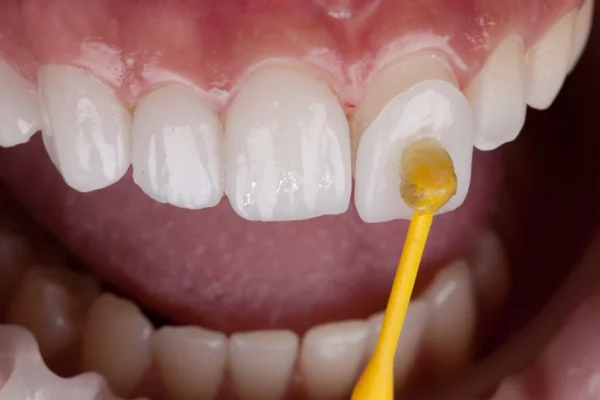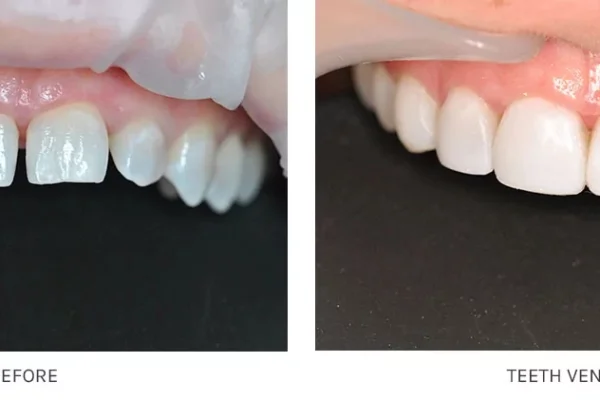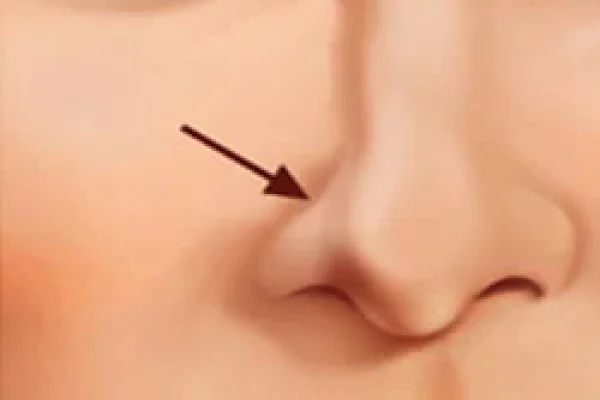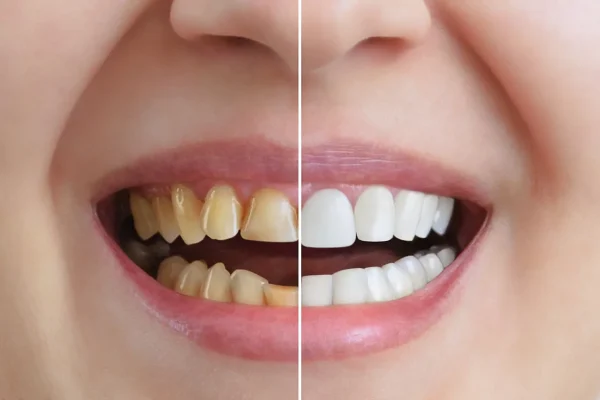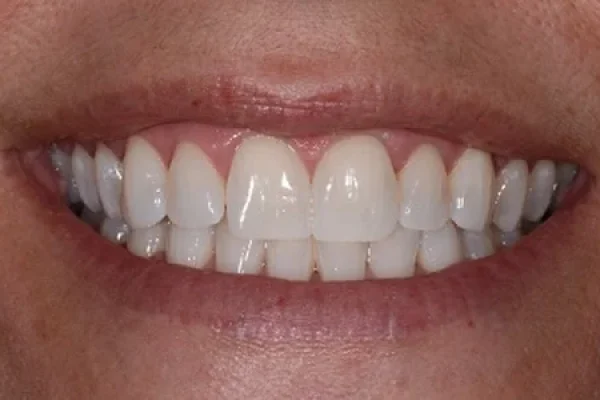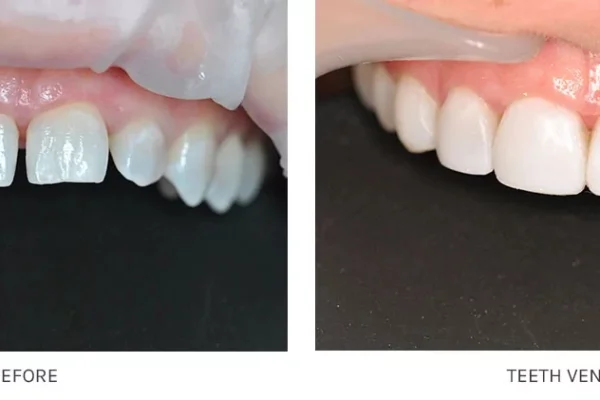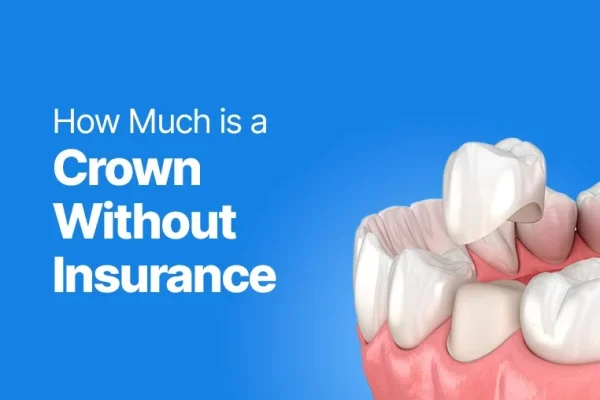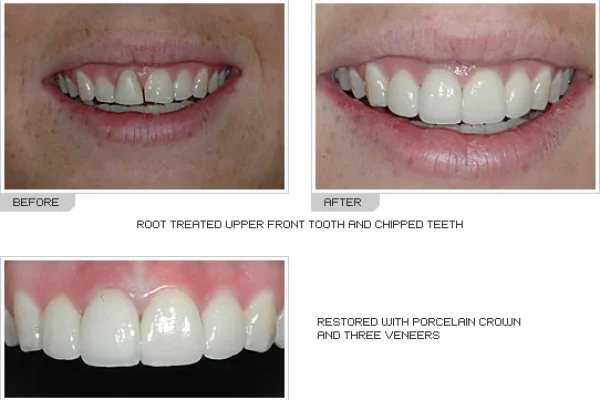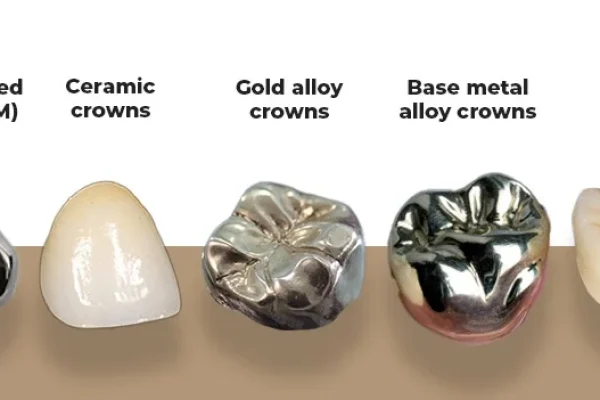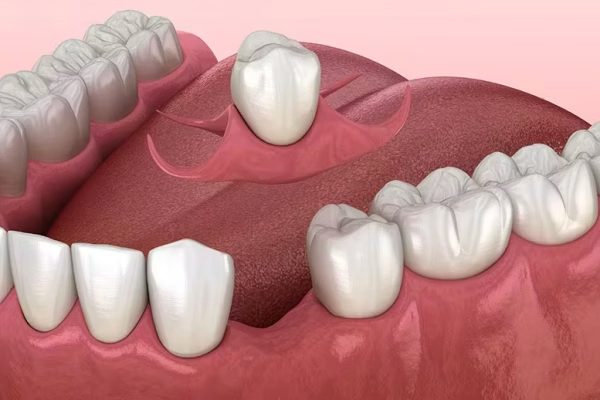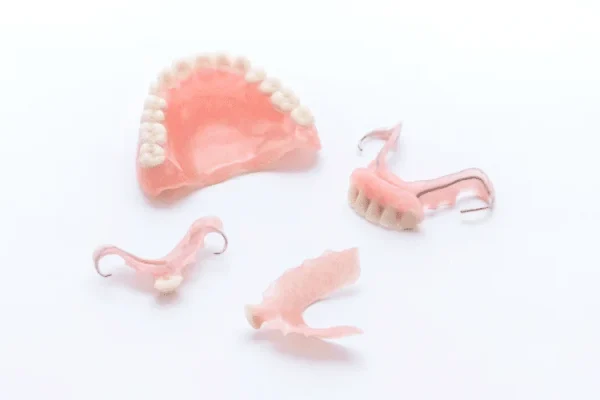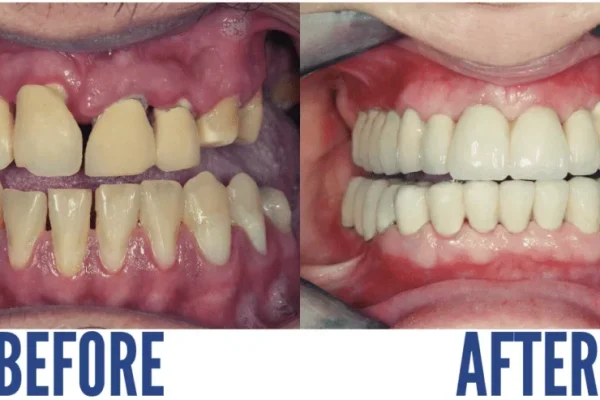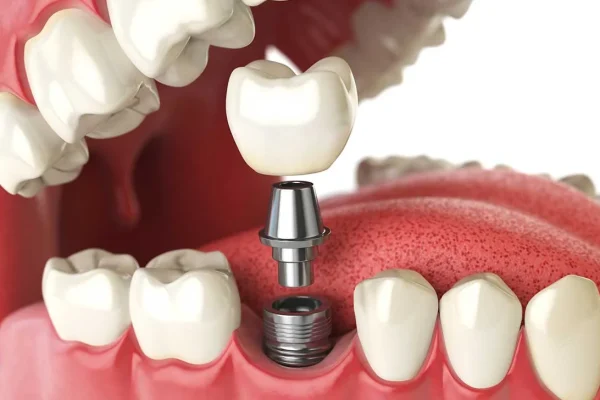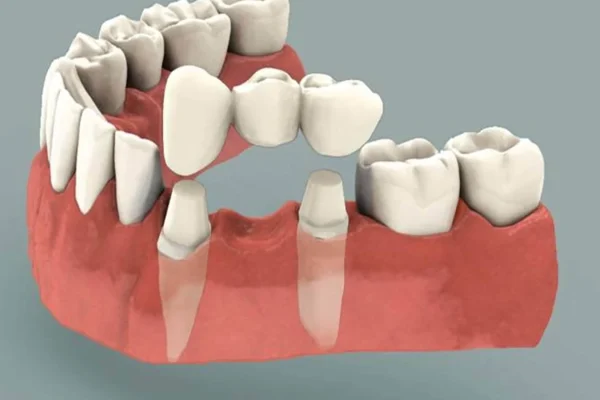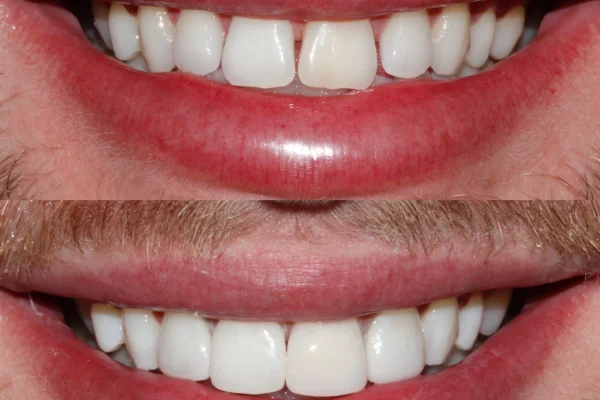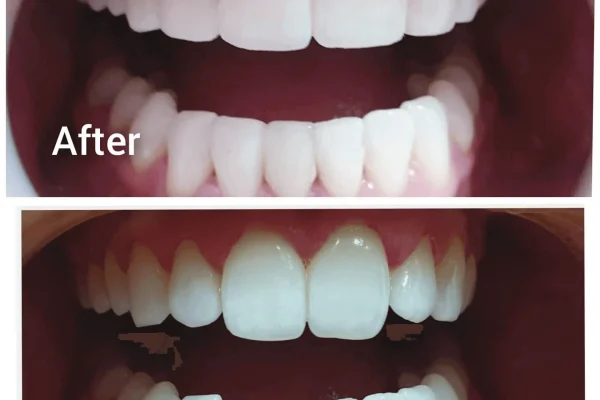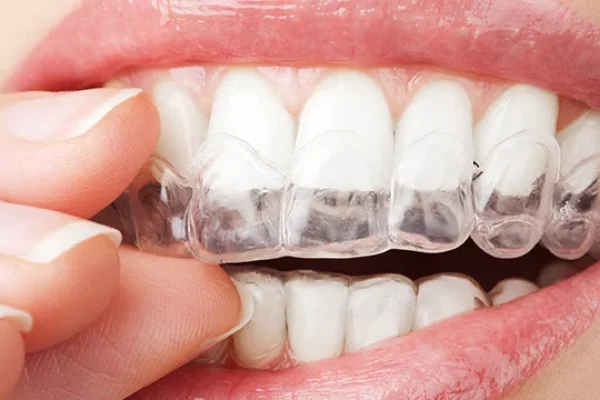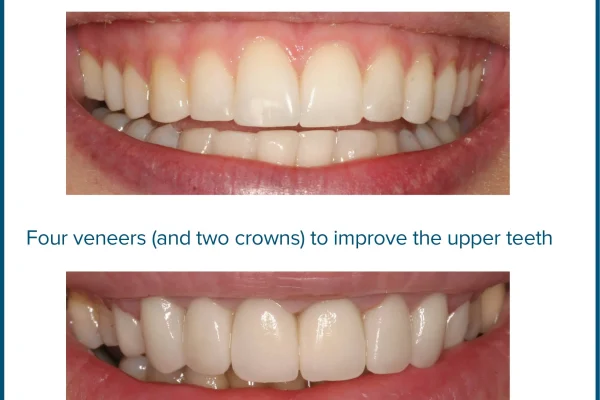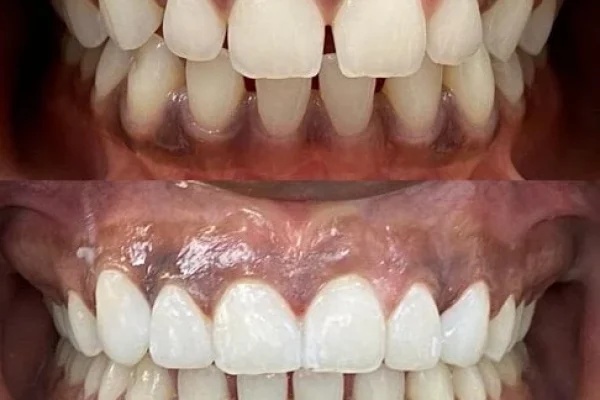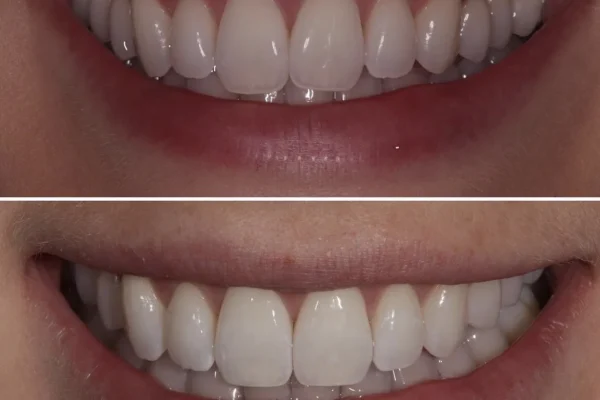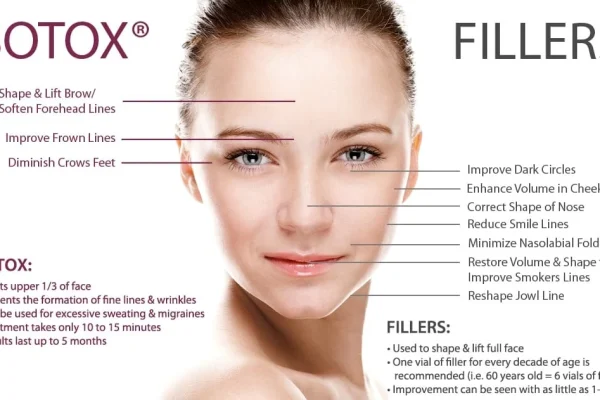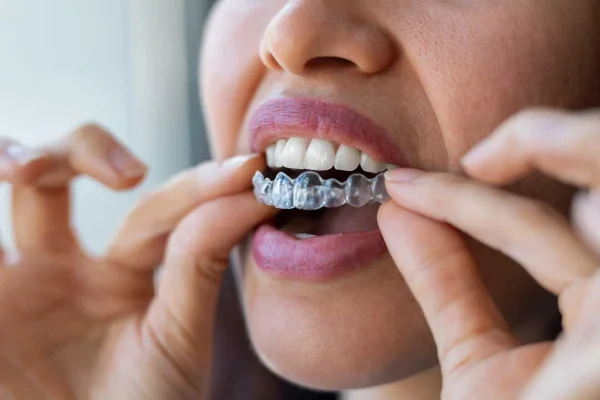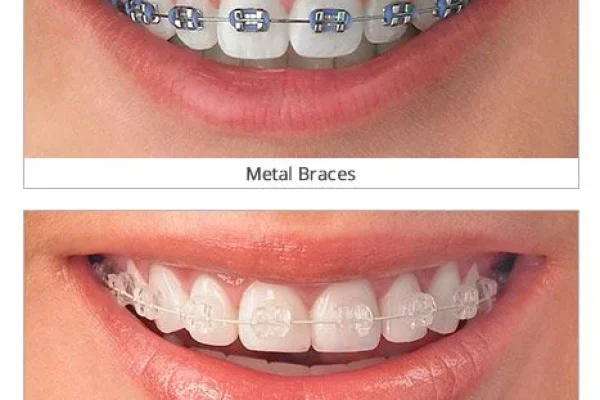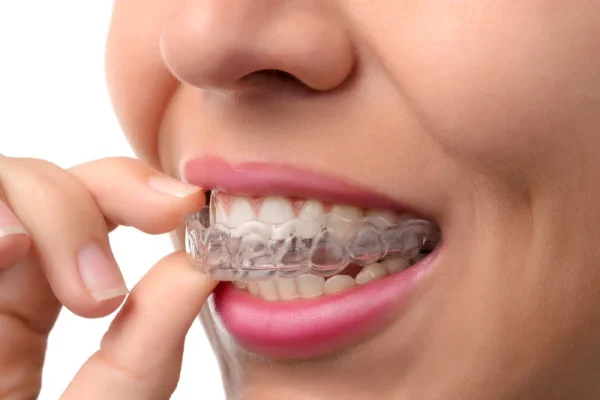
Table of Contents
ToggleKey Takeaways
- Denture costs in the UK vary significantly, ranging from a low fixed NHS fee to several thousand pounds in the private sector.
- Factors like the type of denture, materials used, complexity of the case, and the clinic’s location and expertise heavily influence the price.
- The **NHS** offers the most affordable route for eligible individuals, with a fixed **Band 3** charge covering dentures, regardless of whether it’s a partial or full set.
- **Private** dentures offer more material options and customisation but come at a higher cost, typically ranging from £500 to £10,000+ depending on specifications.
- Additional costs like adjustments, repairs, relining, and cleaning supplies should be factored into the long-term budget.
- **Pensioners** may be eligible for free NHS dentures based on qualifying benefits, not age alone.
- Managing costs can involve getting multiple quotes, exploring finance options, or choosing slightly less premium materials.
What Are the Average False Teeth Prices in the UK?
Okay, let’s talk averages, while keeping in mind that in the world of dentures, ‘average’ is about as precise as a weather forecast for next month. Pinning down one definitive “average” price across the entire UK is tricky business because the gulf between the subsidised NHS route and the diverse landscape of private options is vast. However, we can certainly establish a general range to orient you. For the most basic, acrylic dentures, particularly partial ones replacing just a few teeth, you might find prices starting anywhere from perhaps £300-£500 in the private sector, potentially less for a very simple single-tooth ‘flipper’, though this would be at the absolute budget end and potentially not reflective of widespread availability or optimal quality. Step up to more complex partial dentures, or standard full upper or lower sets in acrylic, and the price in the private market typically ranges from £800 to £2,500 per arch. If you require both upper and lower full dentures, you’re generally looking at somewhere between £1,500 and £4,000+, though this can easily climb higher depending on the clinic’s pricing structure, the materials selected, and the complexity of your oral condition. More advanced private options, like those using premium materials, intricate designs, or incorporating precision attachments, can push costs north of £3,000 or even £5,000 per arch, potentially reaching £6,000 – £10,000+ for a full set of high-end private dentures. This contrasts sharply with the fixed, significantly lower costs offered through the NHS, which we’ll delve into shortly. Phrases you might encounter, like “Cost of Dentures (Correct Prices 13.05.25) | From £850,” often refer to the starting price point within a specific private clinic’s offerings, usually for a more standard partial or full acrylic denture, and serve as a useful, albeit often minimal, benchmark. It’s crucial to understand that these figures are just starting points; many factors can increase the final cost. The ‘average’ then, is less a specific number and more a broad spectrum, stretching from the NHS minimum up through the myriad tiers of private dental care quality and customisation.
How Much Do Dentures Cost on the NHS?
Navigating the costs of dental treatment on the NHS in England is structured around a clear, tiered banding system, designed to make essential dental care accessible. For dentures, along with certain other complex procedures like crowns and bridges, the relevant category is Band 3. As of the current pricing structure, the cost for Band 3 treatment is set nationally. This single, fixed charge covers the entire course of treatment required to provide dentures, even if multiple appointments are necessary, or if both upper and lower dentures are needed as part of the same treatment plan. So, if you require a new set of full upper and lower dentures, or perhaps a complex partial denture, the cost you pay under the NHS is this single Band 3 fee. This is significantly lower than comparable treatment in the private sector because it is heavily subsidised by the government. The Band 3 charge encompasses everything from the initial examination and diagnosis (if not already covered by a previous Band 1 charge within the same treatment), any necessary X-rays directly related to the denture work, the taking of impressions, the try-in stages, the final fitting of the dentures, and any necessary adjustments within a certain period after fitting. It represents a comprehensive package for receiving functional dentures. It’s also vital to be aware of potential exemptions or help with costs. Certain groups of people are entitled to full or partial help with NHS dental charges, meaning their treatment could be free or significantly reduced. This includes individuals receiving certain benefits (like Income Support, Universal Credit in some circumstances, Pension Credit Guarantee Credit), those under 18 (or under 19 and in qualifying full-time education), pregnant women, or those who have had a baby in the last 12 months. Pensioners aren’t automatically exempt based on age alone, but many are eligible due to receiving one of the qualifying benefits. Understanding these exemptions is crucial, as it can make receiving necessary dentures through the NHS entirely free of charge for those who qualify. This fixed, subsidised cost is the defining feature of obtaining dentures via the NHS, offering a vital, more affordable pathway compared to private clinics.
What Do Private Dentures Cost?
Stepping into the realm of private dentures immediately introduces a level of flexibility, material choice, and potential for customisation that isn’t typically available under the standardised NHS system, but it comes with a commensurately higher price tag. While the NHS offers a set fee for a standard service, private clinics operate on a commercial basis, meaning their costs reflect the overheads of their practice, the expertise of their dentists and dental technicians, the quality and range of materials they offer, and the amount of time dedicated to each patient’s case. Consequently, the general price range for private dentures is considerably wider and sits significantly above NHS costs. You might find simple private partials starting in the £500 – £1,000 bracket, but more commonly, expect prices for standard private full or partial acrylic dentures to fall between £800 and £2,500 per arch. Opting for higher-quality materials like high-impact acrylic, chrome cobalt metal frameworks (which are thinner, stronger, and more stable than acrylic, especially for partials), or flexible materials will push the price towards the upper end of this range, often £1,500 to £4,000+ per arch for premium partials or full dentures. The reason for this increased expense isn’t just about profit margins; it’s about the inputs. Private dentists and technicians can dedicate more time to each stage – from taking highly detailed impressions using superior materials, to spending more time discussing aesthetics, tooth shade, shape, and arrangement with the patient. They may also use more advanced techniques and collaborate with master dental laboratories renowned for their craftsmanship. The speed of treatment can also be a factor, with private clinics often able to complete the process faster than is sometimes possible within the NHS system. Clinic ‘Price List’ ranges, as you might find advertised, serve as a starting point, but the final cost will always be confirmed after a comprehensive consultation where your specific needs, the complexity of your case, and your chosen materials and design are taken into account. In essence, private dentures offer a step up in material quality, fit precision, aesthetic appeal, and potentially the speed and experience of receiving the treatment, justifying the higher investment compared to the NHS option.
What Are the Different Denture Types & Costs in the UK?
The fundamental structure of denture pricing in the UK is heavily dictated by the type of denture you need or desire. It’s not a one-size-fits-all scenario; far from it. Dentures are custom-made prosthetic devices designed to replace missing teeth, and the design, complexity, and materials used vary dramatically depending on the number of teeth being replaced, their location, and the condition of your remaining teeth and gums. This inherent variation in the product itself is a primary driver of the cost differences you’ll encounter across the UK dental market, whether you’re looking at NHS or private options. Understanding the basic categories of dentures is key to making sense of the price lists. Are you missing just one tooth, a few scattered teeth, or an entire row? Is the goal purely functional replacement, or is high aesthetic appeal a priority? Do you want a traditional removable option, or something more stable? These questions directly translate into different types of dentures, each with its own manufacturing process, material requirements, and therefore, cost implications. The phrase “types of dentures and cost uk” is precisely what underpins this section, highlighting the direct correlation between the classification of the prosthetic and the financial outlay required. The number of teeth being replaced isn’t just a simple count; replacing front teeth often has a higher aesthetic demand, potentially increasing costs, while replacing back teeth might prioritise function and durability. Furthermore, the condition of the underlying gums and bone structure dictates the complexity of the mouldings and the design required for a stable fit. We will now break down the costs associated with the most common types of dentures available, moving from the simplest replacements up to full sets, to give you a clearer picture of how your specific needs translate into likely expenditure.
How Much Does a Single Tooth Denture Cost in the UK?
Replacing just one missing tooth with a denture is typically the least expensive type of denture treatment available. This is often achieved with a simple partial denture, sometimes informally referred to as a ‘flipper’ or ‘stayplate’. It usually consists of a single prosthetic tooth attached to a small acrylic base that clips or rests around your existing teeth. In the private sector, the cost for a single tooth denture can range significantly but often falls within the lower end of the partial denture spectrum, perhaps from £300 to £800. The exact price will depend on the complexity of the fit and the specific clinic. On the NHS, replacing a single tooth with a partial denture would fall under the standard Band 3 charge, covering the entire treatment as detailed earlier, making it a significantly more affordable option if you are eligible for NHS treatment. It’s a cost-effective solution for filling a gap, particularly as a temporary measure or where other options like bridges or implants are not feasible or desired due to their much higher cost.
How Much Are Partial Dentures?
Partial dentures are designed to replace several missing teeth when some natural teeth still remain. These remaining teeth often serve to hold the partial denture in place. The cost of a partial denture is heavily influenced by the number of teeth being replaced and, crucially, the material used for the framework. Acrylic partial dentures are typically the most affordable, costing anywhere from £500 to £1,500+ in the private sector, depending on the number of teeth and clinic location. They are bulkier than metal alternatives. Chrome cobalt partial dentures, which use a thinner, stronger metal alloy framework, are generally more expensive due to the materials and the more complex manufacturing process. These can range from £1,000 to £2,500+ privately. They offer better fit, stability, and durability. Flexible partial dentures, made from a nylon-like material, are another option, often chosen for comfort or aesthetics (as they can have tooth-coloured clasps). Their cost is typically similar to or slightly higher than chrome cobalt, often falling between £800 and £2,000+. Again, on the NHS, a partial denture of any material type would be covered by the single Band 3 charge.
How Much Is a Full Set of Dentures UK?
A full set of dentures replaces all the teeth in either the upper jaw (maxillary arch) or the lower jaw (mandibular arch), or both. Replacing an entire arch requires a significant amount of acrylic base material and prosthetic teeth, as well as detailed moulding to ensure a secure fit to the gums and underlying bone. In the private sector, the cost for a single full denture (either upper or lower) typically ranges from £800 to £2,500+. If you require a full set for both upper and lower arches, the cost is usually roughly double, or sometimes slightly less than double, the price of a single full denture, putting the range for a full upper and lower set between £1,500 and £5,000+. Premium materials, advanced techniques, or highly aesthetic customisation can push this cost considerably higher, potentially exceeding £8,000 or even £10,000 in high-end clinics. This is generally the most expensive type of traditional removable denture due to the extensive work and materials involved in recreating an entire dentition. As with other types, a full set of dentures provided through the NHS is covered by the single Band 3 charge, regardless of whether it’s for one arch or both.
What Are the Costs of Specific Denture Types?
Beyond the basic acrylic partial or full dentures, the UK market offers several more specialised types, each with its own cost implications reflecting material science, design complexity, and the level of laboratory craftsmanship involved. Flexible dentures, as briefly mentioned, utilise a unique thermoplastic material that is more flexible and often more comfortable for certain patients compared to rigid acrylic. They can also offer improved aesthetics with tooth-coloured clasps instead of metal. While prices vary, Flexible Dentures Cost UK typically ranges from £800 to £2,000+ in private clinics, often being a mid-to-higher-range partial denture option. Another significant category involves dentures that are fixed or stabilised by dental implants. These are often referred to as implant-supported dentures or implant-retained dentures. While they are technically a type of denture, their cost structure is fundamentally different as it includes the significant expense of the surgical placement of dental implants. Fixed denture costs or “permanent false teeth cost uk” in this context are substantially higher than traditional removable dentures, typically starting from £5,000 for a single implant-retained lower denture (often just needing 2 implants) and easily climbing to £10,000 – £25,000+ for full arch fixed bridges or full dentures supported by multiple implants (e.g., ‘All-on-4’ type restorations). It’s crucial to differentiate these implant-supported options from traditional removable dentures when discussing costs, as they represent a completely different investment level and treatment approach. Other, less common types or premium versions might incorporate milled frameworks, precision attachments, or highly aesthetic multilayered teeth, all contributing to a higher price point in the private sector.
What Influences the Cost of Dentures?
Delving deeper, it becomes clear that the sticker price on a set of dentures isn’t pulled out of thin air; it’s the culmination of several converging factors, each adding a layer of complexity and, often, cost. Understanding these variables is key to deciphering the range of quotes you might receive and appreciating the significant difference you might observe between cheap dentures and expensive dentures. Firstly, the materials used are paramount. Basic NHS or budget private dentures are typically made from standard acrylic. This is functional and effective but may be less durable, slightly bulkier, and less aesthetically sophisticated than premium alternatives. More expensive dentures can incorporate higher-impact, more durable acrylics, precision-milled chrome cobalt metal frameworks for partials (offering strength, thinness, and a better fit), or advanced flexible polymers. The prosthetic teeth themselves also vary wildly in quality, from basic single-shade acrylic teeth to multilayered, high-definition teeth made from ceramic or composite resin that mimic natural translucency and colour variations, significantly impacting the aesthetic quality and cost. Secondly, the complexity of the case plays a huge role. A straightforward case involving well-healed gums and good bone structure is far simpler to treat than a mouth with significant bone loss, oddly shaped ridges, or requiring intricate clasps to fit around remaining natural teeth. Cases that require multiple extractions beforehand will also add to the overall dental expense. Thirdly, geographical location within the UK absolutely matters. Dental practices in areas with high overheads, such as central London and the South East, typically have higher fee structures than those in regions with a lower cost of living. Finally, the expertise and reputation of the dentist and, crucially, the dental technician who crafts the dentures are reflected in the price. Master technicians using cutting-edge technology and materials will command higher fees, resulting in dentures with superior fit, comfort, function, and aesthetics compared to those produced in a high-volume, lower-cost laboratory. The difference between cheap and expensive dentures, therefore, isn’t just about the price tag; it’s about the investment in materials, craftsmanship, time, and technology that contribute to the final product’s quality, longevity, and how natural it looks and feels. These cost considerations of dentures are multifaceted, requiring a careful balance of budget and desired outcome.
Are There Additional Costs to Expect with Dentures?
Acquiring dentures isn’t always a one-time transaction; there can be ongoing or associated costs that are crucial to factor into your long-term financial planning. While the initial purchase or NHS Band 3 charge covers the creation and fitting of the dentures, life with them often involves a few extra financial considerations. One of the most common additional expenses is adjustments. New dentures often require a few follow-up appointments for minor adjustments to alleviate sore spots or improve the fit as your mouth adapts. While initial adjustments soon after fitting are often included in the original cost (particularly with private clinics), subsequent adjustments much later down the line, or those required due to significant changes in your mouth, may incur a fee. Repairs are another possibility. Dentures can break, chip, or lose a tooth, especially if dropped or subjected to excessive force. The cost of Maintenance and Repair Costs varies depending on the extent of the damage, but a simple break or adding a tooth might cost anywhere from £50 to £200+, while more complex repairs could be higher. Relining or rebasing may also be necessary over time. Your jawbone and gums naturally change and shrink when teeth are missing, causing dentures that once fit perfectly to become loose. A reline (adding a new layer of acrylic to the denture base) or rebase (replacing the entire base) reshapes the denture to the current contours of your mouth, restoring stability. Relines typically cost from £150 to £400+ privately, while rebasing is more involved and costly. Furthermore, you’ll need to budget for cleaning supplies – specific denture brushes, cleaning solutions or tablets are essential for maintaining hygiene and preventing staining or odour. Lastly, if you require extractions before getting your dentures, these are separate dental procedures with their own costs, whether on the NHS or privately, which must be factored into the total expense of getting your false teeth. Ignoring these potential additional costs can lead to unexpected bills down the line.
What is the Cheapest Way to Get False Teeth?
When the primary concern is budget, understanding the most economical path to obtaining dentures, or “false teeth,” becomes paramount. Without question, for those who are eligible, the National Health Service (NHS) provides the cheapest way to replace teeth in the UK, specifically with dentures. As covered earlier, the cost for dentures on the NHS is a fixed, Band 3 charge, which is significantly subsidised compared to private treatment. For many individuals receiving certain benefits, or those under 18/19 in qualifying education, NHS dentures can even be entirely free of charge. This makes the NHS the go-to option if cost is the absolute limiting factor and you meet the eligibility criteria. While you might not have the extensive choice of materials or the same level of aesthetic customisation as in the private sector, NHS dentures are designed to be functionally effective and restore basic chewing ability and appearance. It’s worth briefly contrasting this with other tooth replacement options like dental bridges and dental implants. These methods are generally considered more permanent and aesthetically superior but come at a significantly higher financial cost – single implants can range from £2,000 to £4,000+, and bridges several hundred to a few thousand pounds depending on size and material. Therefore, if you’re asking “What is the cheapest and fastest way to fix teeth?” or “What is the cheapest way to get all new teeth?”, focusing purely on cost within the traditional prosthetic domain, dentures, particularly via the NHS if eligible, are the clear answer. While there might be slight variations in private pricing, the NHS Band 3 charge offers the most accessible and affordable route for functional false teeth for eligible individuals across the UK.
How Can You Manage Denture Costs?
Investing in dentures, particularly if opting for private treatment or needing a full set, represents a significant financial outlay for many individuals. Fortunately, there are several practical strategies and avenues to explore that can help make the cost more manageable and less burdensome. One fundamental step is to get quotes from multiple clinics. Prices for similar types of dentures can vary between private practices, even within the same geographical area. Don’t be afraid to have consultations (some may charge a fee for this, others offer free initial chats) with two or three different dentists or prosthodontists to compare their proposed treatment plans, recommended denture types, materials, and the associated costs. Ensure the quotes are detailed and break down exactly what is included. Another increasingly common option is dental finance plans or Ways to pay for modern dentures – finance them!. Many private dental clinics offer payment plans, often through third-party finance providers, allowing you to spread the cost of your dentures over several months or even years, sometimes interest-free for a certain period. This can make higher-cost, premium dentures more accessible by breaking the total amount into smaller, regular payments. While less common, some clinics might also offer their own in-house instalment plans. Additionally, while the focus is often on finding the cheapest option, sometimes managing costs is about finding the best value for your budget. This might involve discussing different material options with your dentist – perhaps a slightly less expensive, but still durable, acrylic can be used instead of the absolute premium version if budget is a major constraint, without compromising too much on function. Saving money on dentures isn’t just about the initial price; it’s also about choosing a clinic and technician whose work provides a good, comfortable fit initially, potentially reducing the need for costly adjustments down the line, and choosing materials known for their durability, which could mean fewer repairs or the need for replacement in the future. Managing Denture Costs effectively requires research, comparison, and open discussion with your dental professional about your financial constraints and treatment options.
Cost of Dentures for Pensioners: What You Need to Know
For pensioners in the UK, understanding the cost of dentures involves specific considerations related to both NHS eligibility and how private clinics might approach their needs. Age itself, simply being a pensioner, does not automatically grant free NHS dental treatment. However, a significant number of pensioners are entitled to free NHS dentures (and other dental treatment) because they receive one of the qualifying benefits. These benefits commonly include Pension Credit Guarantee Credit. Pensioners receiving Pension Credit Savings Credit without the Guarantee Credit component do not automatically qualify for free treatment, but they may still be eligible for help with health costs through the NHS Low Income Scheme, depending on their overall income and savings. It is crucial for pensioners to check their eligibility based on the specific benefits they receive or to apply for the NHS Low Income Scheme if they are not automatically exempt. If a pensioner is not eligible for free NHS treatment, they will pay the standard Band 3 charge for dentures, which is the same cost for any adult requiring this treatment band. While some private dental clinics might occasionally offer senior discounts or specific payment plans, this is not a universal practice and is entirely at the discretion of the individual clinic. There are no government schemes or automatic discounts for private dental treatment based purely on age. Therefore, the key for pensioners is to ascertain their eligibility for free or reduced-cost treatment via the NHS based on their financial circumstances and benefits. For those who are not eligible for NHS help, the cost of dentures will be the standard NHS Band 3 charge or the private fee structure, depending on their chosen route. Navigating the Cost of Dentures for Pensioners primarily revolves around leveraging potential NHS exemptions based on income and benefits received.
Frequently Asked Questions About false teeth prices uk
Here, we tackle some of the most common questions that pop up when people are trying to wrap their heads around the cost of dentures in the UK. It’s a complex topic, and getting straightforward answers can feel like pulling teeth (pun intended). We’ve covered a lot of ground, but these specific queries tend to be top-of-mind for many, offering concise summaries of the key financial aspects involved in getting dentures, whether exploring NHS avenues or considering the broader options available in the private dental market. Understanding these core points will help solidify your grasp of the potential expenses and the factors that drive them.
How much are dentures uk?
Denture costs in the UK vary significantly. On the NHS, dentures fall under the Band 3 charge, a fixed, subsidised fee (check current NHS dental charges for the exact amount). In the private sector, prices range widely based on the type, materials, and clinic. Basic private partials might start around £500-£800, while full upper and lower sets using standard acrylic can range from £1,500 to £4,000+. Premium private dentures using advanced materials and techniques can cost £5,000 or significantly more for a full set.
How much do dentures cost privately?
Privately, dentures are more expensive than on the NHS due to higher overheads, wider material choice, and greater customisation. Prices generally range from roughly £500-2,500 for a single partial or full denture (per arch) and £1,500-£5,000+ for a full upper and lower set of traditional dentures. Specialised types or premium materials push the cost higher.
How much is a single tooth denture in the UK?
A single tooth denture, often a simple acrylic partial or ‘flipper’, is typically the cheapest type. In the private sector in the UK, this can cost anywhere from approximately £300 to £800. On the NHS, it would fall under the standard Band 3 charge, covering the full treatment.
How much is a full set of dentures private uk?
A full set of dentures (replacing all teeth in both the upper and lower jaws) in the private UK market generally costs between £1,500 and £5,000+ for standard acrylic options. The exact price depends heavily on the clinic, location, complexity, and the quality of materials and craftsmanship chosen. High-end private full sets can easily exceed £8,000-£10,000.
How much does a false tooth cost NHS?
Replacing a false tooth, if referring to needing a denture to replace one or more missing teeth, costs the NHS Band 3 charge for eligible individuals. This single fee covers the entire treatment for dentures, regardless of whether it’s for one tooth, several teeth (partial), or a full set. If you are eligible for free NHS treatment (e.g., due to benefits), then the false tooth/denture would cost you nothing.





